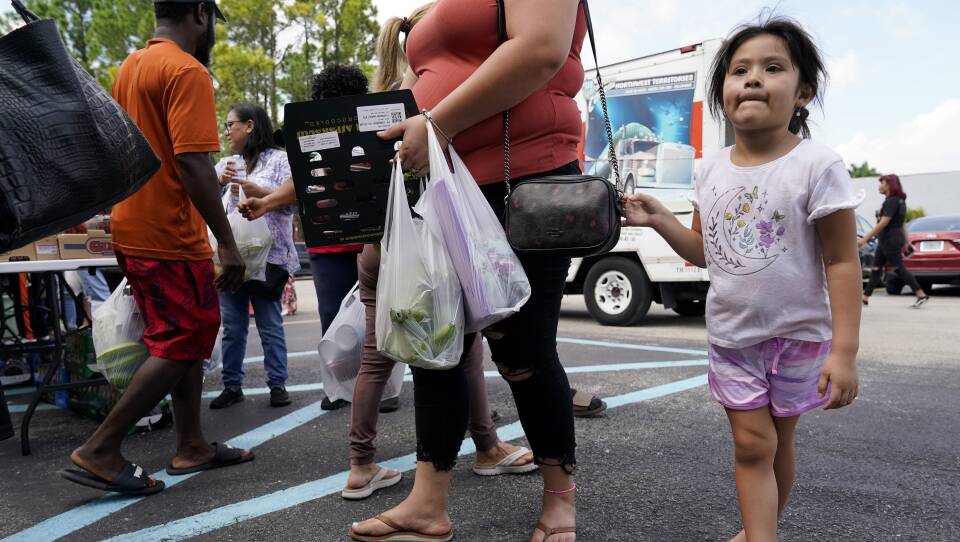Can Massachusetts lead the nation in abolishing food insecurity?
November 08, 2024

Food insecurity is a year-round problem, but as the holidays approach, what is often an invisible problem gets more public attention. According to the Greater Boston Food Bank, nearly 2 million Massachusetts residents are food insecure, meaning they don’t have enough to eat or don’t know where their next meal will come from. The number of hungry people dropped when pandemic funds helped fill the gap, but with the end of that funding and rising inflation, food insecurity continues to rise across the state.
The state of food insecurity in Massachusetts has inspired a variety of organizations, anti-hunger advocates and policymakers to form the Make Hunger History Coalition. One of the partners includes the Boston-based nonprofit Project Bread, which aims to not only connect communities in need with food but also advocate for systemic change.
“Right now, 20% of families with children are food insecure in Massachusetts. That means 1 in 5 families — that are our friends, our family, our neighbors — are struggling with putting food on the table,” said Erin McAleer, president and CEO of Project Bread.
Tim Cavaretta, director of operations at Food For Free, echoed that sentiment.
“Once the public health emergency receded — and especially after COVID-era funding resources dried up — we’ve seen that it’s harder to get donations of food in the volume that we became accustomed to back in 2021, 2022,” Cavaretta said. “So we have not seen the demand go down, and we’re just working every day to identify new food donors and come up with innovative programing to get the food to the people who need it the most.”
Food for Free, an organization out of Somerville founded by a group of friends in the 1980s, is centered more on reducing waste, rescuing food that would often be discarded and transporting food from organizations like food banks to smaller pantries across Eastern Massachusetts.
Despite the pervasive nature of hunger throughout the commonwealth, myths and stigmas around food insecurity are still prevalent, especially the notion that with hard work comes economic success and no need for food assistance.
“We’re talking about people who even working a full-time job on minimum wage or minimum wage plus still can’t make ends meet,” said Andrew Morehouse, executive director of the Food Bank of Western Massachusetts. “They’re working hard, oftentimes two or three jobs, and they’re just getting by. And until we open up our hearts and minds to think about it and be willing to understand the barriers that folks confront, we’re not going to be able to solve this problem.”
But solving the problem of hunger takes more than charity.
“This is a systemic issue and not an individual failing,” McAleer said. “As people are thinking through this issue, certainly we need those immediate solutions. But we also need to commit ourselves to the long-term solutions.”